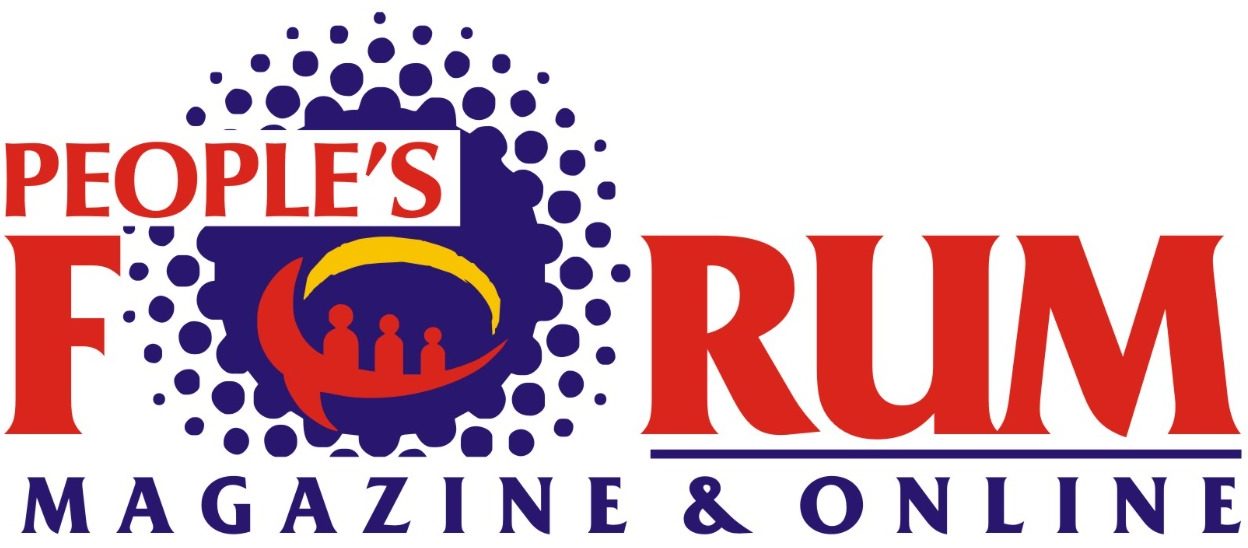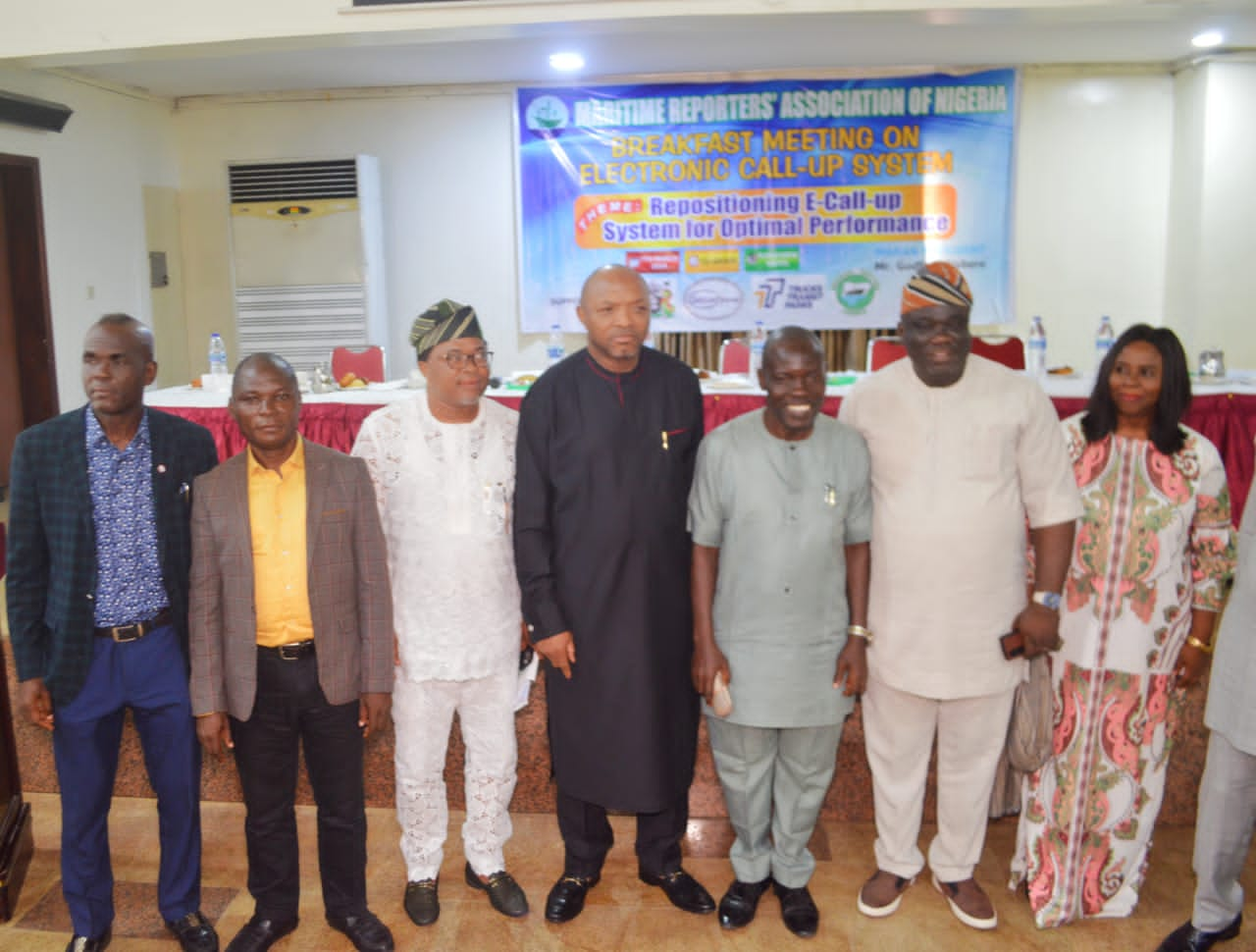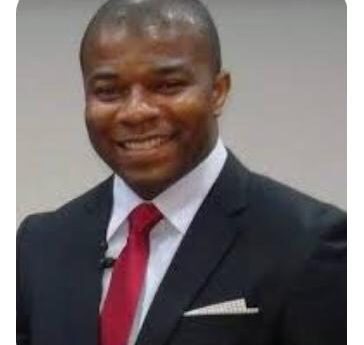Critical stakeholders in the maritime industry have proffered solutions to the incessant traffic snarls in Nigeria’s premier port city of Apapa.
The stakeholders who converged on Rockview Hotel Apapa at the instance of the Maritime Reporters Association of Nigeria (MARAN) technically agreed that the E-Call Up System popularly called ETO needs finetuning.
Leading the pack of speakers in his lead paper presentation,
on the theme “Repositioning Eto Call-Up System for Optimal Performance”, National President of National Council of Managing Directors of Licensed Customs Agents (NCMDLCA), Mr. Lucky Eyis Amiwero described the selling of the Eto Call-Up ticket by TTP and NPA as an illegality which must be investigated.
Amiwero maintained that Eto Call-Up sales is not tied to any service and therefore the cost should be borne by NPA and not the clearing agents who currently bear the burden through the truckers.
He said that the Port Act of 1999 allows only the licensed agents to process documents and go into the port, hence, the documentation of the Eto Call-Up should be done by clearing agents and not transporters.
He lamented that the lease agreement with concessionaires was not backed up by any law
which makes Nigerian ports to be one of the most expensive in the whole world.
According to him, the economic regulations to monitor the terms of the concession and unwholesome practices of terminal operators are absent, which gives terminal operators powers, to do as they like as nobody regulates, nobody controls or does anything to stop the terminal operators.
The NCMDLCA boss said the concession was done just based on paper by the BPE, and not based on any Nigerian law, adding that some of the agreements have expired and nobody is looking into them.
He insisted that the payment of holding bay fees and payment of money to enter into the port is not recognized in the terms of the lease agreement as the NPA is no longer involved in cargo operation.
Quoting section 32A, he stated that NPA is to regulate traffic within the limits of the ports.
“This means that NPA is to bear the responsibility which is created by them, and not to transfer such cost to the licensed customs agent or the importers.
Part of the NPA 7% surcharge is supposed to be used for this, the surcharge is for port development levy.
“The Eto Call-Up system is not for port users, it is for NPA based on their laws, they don’t have any rights to transfer that cost to port users, it is illegal, it is unconstitutional and it must be corrected.
“The Eto Call-Up is a part of port infrastructure that must be maintained by NPA, the payment by licensed customs agents is double handling. That money you are collecting, we would go to court and collect back that money because it is not backed by law.
“Transporters should not also be given anything that has to do with cargo documentation, it has to be done by the licensed customs agents, transporters have no right coming into the port without being invited by the clearing agents,” he declared.
the General Manager in the Nigerian Ports Authority (NPA) Managing Director’s office, Mr. Ayodele Durowaiye who represented the NPA Managing Director, noted that the organization has resolved that all shipping companies must have Empty Container Holding Bays.
Durowaiye maintained that with empty container holding bays, all operational movement of trucks that block port access will be reduced.
According to him, prior to the adoption of the ETO Call-UP System, there was a presidential intervention to help ease movement around Port and also ease of doing business, but all this did not yield positive result.
Durowaiye said that at the time truckers were paying excess of N250,000 just to get truck into the port, and there is no guarantee of entering the port.
This, he stated, prompted the Authority to deploy the E-Call-Up System, engaged a tech company called Truck Transit Park (TTP) to resolve the congestion issue amicably.
“Since the adoption of the Concept, it’s practical effect cannot be ignored. For example the turn around time for trucks that used to take 15-17 days has changed to two days maximum”.
On Empty Container holding bay policy, the NPA MD representative explained that every shipping company operating within the ETO system must have a holding bay that can hold at least 65 percent of the number of containers they bring into the country.
For example, he noted that any shipping company that brings in 1000 boxes into the country monthly, must have an holding bay that can take 650 containers and the holding bay must belong to Nigeria. With this, the remaining 35% will be moving around the country and before they come the ship that brought the 1000 must take a minimum of 850-900 empty boxes either as an export or empties outside the country.
The Apapa Port Manager, Mr. Charles Okaga, stressed the need for government authorities responsible for the regulation of activities in Apapa to have Call-UP System.
Okaga emphasized that the roads leading to Apapa were built strictly for Port/Dry Cargo Operations and this was when Lagos had a population of seven million.
He lamented that wet cargo has taken over about 50/60 percent of the roads, saying that there is the need to holistically look at this together as Nigerians and not from a single point.
He said that Tin Can Island – Mile 2 Road has been rehabilitated and ready for use, appealing to stakeholders to prevail on the government authorities that are responsible for the regulations of these activities.
Okaga enjoined regulators of wet cargo trucks to also have Call -Up System for sanity on Tin Can Island – Mile 2 Road road.
In his own contribution, the Operations Performance Manager, Truck Transit Park, Mr. Adekunle Ojo, emphasized that relevant actors should embrace automation, run it, administer it as done in other developed countries in order to achieve productivity, profitability and improvement that will impact positively on the nation’s economy.
Ojo stated that all stakeholders in the industry took the right decision to embrace automation, as TTP is available to carry out the automation system for the Truck Parking Management System within our port.
He narrated that there have been tremendous improvements in reduced cost of accessing port, reduce time it takes for trucks to access the ports among others.
Ojo stressed that It’s important to note that for every system adopted in this world, there is room for improvement, adding that the automation deployed by TTP in Nigeria today is in line with Global Best Practice.
“But our inability to follow Standard Operating Procedures for the system is responsible for where we are today, terminal capacity diversion of trucks within the Port, issues of people faking ETO Call-UP System, faking MSS are also challenge faced in running this Concept. However, if we follow the SOP, we will achieve top notch improvement. Let’s join together to embrace ETO Call-UP System and run it, administer it the way it should be done, I can tell you efficiency, productivity, profitability and improvement that will impact our national economy will be achieved,” he intoned.
On his part, the CEO, MMS Plus Newspaper, Mr. Kingsley Anaroke, noted that from the synthesis of divergent operational realities at hand, it is safe to conclude that ETO is a success to a large extent but remains a work in progress.
Anaroke tasked NPA and TTP to rethink the scalability of the ETO software, that is, being able to increase performance to meet the rising demand by automating more critical area of ETO operation to eliminate human contact.
He suggested that to eliminate the gridlock caused by multiple checkpoints created by different unions, security and traffic operatives, as well as local council agents for collection of different levies after legitimate call-up, Federal Government should design an integrated payment system that will ensure that the payable fees for all the unions and other deserving groups are paid into the ETO account from where disbursements will be made to the various groups weekly or monthly. For instance, a trucker could be levied N40,000 so that when TTP collects its N21,500 for call-up, N18,500 will be shared among the verified unions and security operatives, and agents.
“This requires undertaking a stakeholders’ mapping of the groups and verify the legitimacy and legality of each of them to earn the money. Consequently, any union thug or security operative agent caught creating checkpoint on the road risks four years imprisonment after an instant trial by a mobile court that should be put in place.Any trucker caught compromising any willing tool to take advantage of his colleagues on queue should be liable for four years imprisonment with the option of forfeiting his truck to government.
To back this proposition up with legislation, the electronic call –up system operates within the Apapa municipal jurisdiction as such all that is needed is to enact a Bye- Law or an Ordinance which is the responsibility of the elected Councilors to carry out to give it effect. Mobile courts are presided over by Magistrates,” he stated.
Anaroke advised them leadership of NPA to license two more electronic call –up companies for competition and keep reviewing and improving the infrastructure and enforcement as well as prosecute officers or culprits in electronic call –up racketeering to deter others.
“I strongly recommend the use of mobile court to adjudicate ETO cases with measures of penalties capable discouraging fraud or cutting corners,” he maintained. jurisdiction as such all that is needed is to enact a Bye- Law or an Ordinance which is the responsibility of the elected Councilors to carry out to give it effect. Mobile courts are presided over by Magistrates,” he stated.
Anaroke advised the leadership of NPA to license two more electronic call –up companies for competition and keep reviewing and improving the infrastructure and enforcement as well as prosecute officers or culprits in electronic call –up racketeering to deter others.
“I strongly recommend the use of mobile court to adjudicate ETO cases with measures of penalties capable discouraging fraud or cutting corners,” he maintained.
Earlier in his welcome address, Mr Godfrey Bivbere, President of MARAN, stated that despite Eto positive impacts, the electronic call-up system had faced criticism, with some operators alleging that it had worsened the traffic crisis and facilitated corruption and extortion.
Bivbere stressed that this informed the decision of MARAN as the watchdog and agenda setting body for government to put up the breakfast meeting.
“Critical stakeholders have raised concerns that the platform had deviated from its original purpose and turned into a source of revenue generation and that the port environment has returned to the pre-Hadiza Bala-Usman era.
“We are here to discuss workable solutions to rectifying these anomalies and ensure that the platform delivers on the mandate for which it was created to the benefit of the industry at large,” he said.





